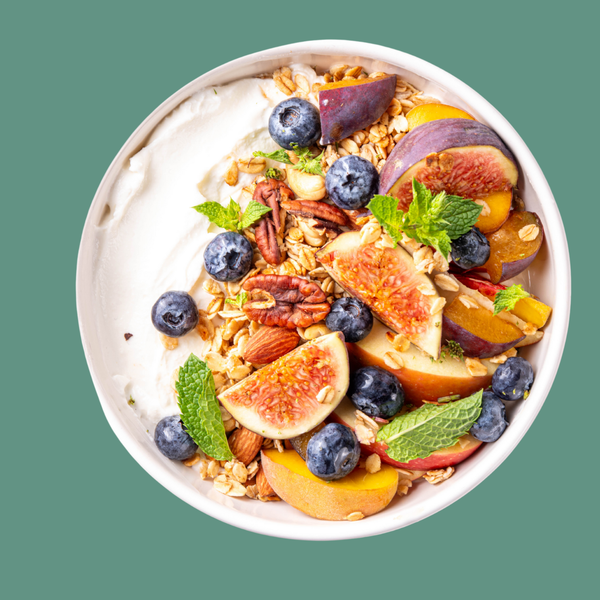How Blood Sugar Affects PCOS & Fertility
Blood sugar and insulin resistance play a major role in PCOS and fertility. Discover how balanced nutrition can improve cycles, reduce symptoms, and support fertility.

Why Blood Sugar Matters
Polycystic Ovary Syndrome (PCOS) is an endocrine disorder that disrupts hormone balance, blood glucose regulation and fertility. About 65-70% of people with PCOS have insulin resistance.
Insulin resistance is when cells don’t respond properly to insulin (a hormone that helps get blood glucose out of the bloodstream and into the cell). When blood sugar is high the body to produces more insulin. Higher levels of insulin cause the body to make more androgens ("male" hormones). This hormone imbalance can contribute to irregular ovulation, irregular menstrual cycles, food cravings, weight gain, and infertility.
The encouraging news? The way you eat can directly influence your blood sugar and insulin response. Small, consistent changes can help reduce symptoms, improve cycles, and support fertility.
(As you read, you’ll notice references to upcoming articles. When they’re published, we’ll link them here — if you’re signed up for Food & Fertility Insights, they’ll land directly in your inbox.)
Insulin Resistance and PCOS
Insulin: Insulin helps move sugar (glucose) from your blood into your cells, where it’s used for energy.
Insulin resistance: In insulin resistance, cells don’t respond to insulin very well. This causes blood sugar to be elevated, and the body produces more insulin to try to compensate.
Hormone imbalance: High insulin levels can signal the body to make more androgens (“male” hormones), which may disrupt ovulation and lead to symptoms like irregular cycles, acne, unwanted hair growth and weight gain.
Learn more about how insulin resistance connects to symptoms in our main article: PCOS and Fertility.

Nutrition Plays a Key Role
Nutrition is one of the most powerful tools for managing blood sugar and helps improve hormone balance with PCOS. Over time, nutrition can:
Help improve hormone balance.
Leading to regular menstrual cycles and ovulation.
Help ease food cravings.
Improve fertility.
Practical Strategies to Support Blood Sugar
Choose Balanced Meals
Here are some examples:
Breakfast: veggie omelet with avocado, overnight oats with chia and berries, or Greek yogurt with nuts and fruit. For more see our upcoming article: What Does a PCOS-Friendly Breakfast Look Like?
Lunch: quinoa salad with beans and veggies, turkey and hummus wrap with lettuce and tomato, or lentil soup with whole grain bread. For more see our upcoming article: Quick PCOS-Friendly Lunch Ideas.
Dinner: grilled salmon with quinoa and roasted vegetables, chicken stir-fry with brown rice, or a bean-and-veggie chili. For more see our upcoming article: Easy Dinner Ideas for Hormone Balance and Fertility.
Don’t Skip Meals
Going too long without eating can cause blood sugar dips, leading to fatigue, strong food cravings, and overeating later in the day. Regular meals help keep blood sugar steady and give your body the fuel it needs.
Plan for Snacks
Balanced snacks can keep blood sugar steady between meals.
Try: hummus with carrots, cheese with whole grain crackers, or a handful of nuts with a piece of fruit. See upcoming article: Snack Swaps for Fertility.
Reduce Sugary Drinks
Juices, sodas, and sweetened coffee drinks can spike blood sugar quickly. Opt for water, fruit infused water or sparkling water most of the time. See upcoming article: Beverage Guide for Fertility.
Moving Toward Balance
Balancing blood sugar is a powerful way to support your fertility with PCOS. Small, consistent changes to diet and lifestyle can help regulate menstrual cycles and ovulation, improve energy, and prepare your body for the family of your dreams.





